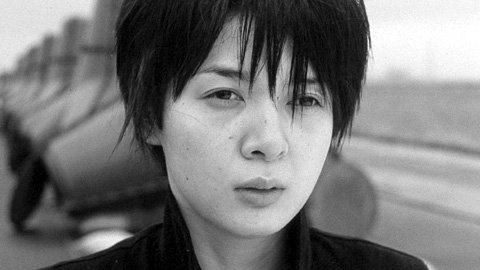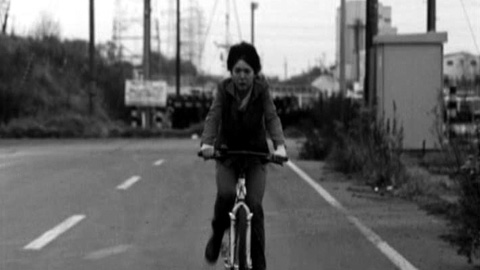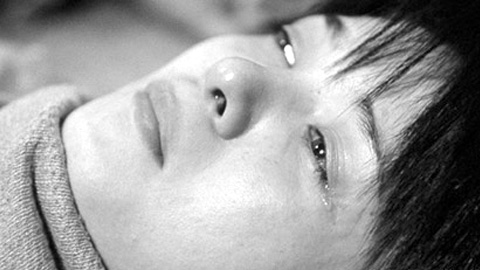Bashing
- Year
- 2005
- Original title
- Basshingu
- Japanese title
- バッシング
- Director
- Cast
- Running time
- 82 minutes
- Published
- 28 September 2011



by Tom Mes
When it was announced that Masahiro Kobayashi's Bashing was selected for the 2005 Palme d'Or competition at Cannes - the director's fourth consecutive film to receive the honour - the news raised more than a few eyebrows in the Japanese film industry and among observers of the nation's cinema abroad. Kobayashi is generally not liked all that much, you see. Exactly why remains unclear. There is always a lot of tut-tutting about his supposed copying of French cinema, but he isn't nearly as slavish in his devotion to this as, say, Nobuhiro Suwa. Maybe it's just envy over the fact that Cannes seems to love him so much while he remains merely a marginal figure back home.
Kobayashi is a prolific scriptwriter in the erotic pink film industry, having penned screenplays for Toshiki Sato and Toshiyo Ueno. His third film as a director was the pink film One Week (Isshukan: Aiyoku Nikki, 2000). The face the director prefers to promote to the outside world, however, glosses over this fact, preferring to focus on his 'straight' festival successes Closing Time (1997), Bootleg Film (1999), Koroshi (2000), The Man Walking on Snow (Aruku Hito, 2001) and La Coiffeuse (Onna Rihatsushi no Koi, 2004). This double life seems to be another source of discontent, as does his unwillingness to admit that his much vaunted past as an assistant director to François Truffaut is a very generous embellishment of the truth that Kobayashi left for France in hopes of working for the director of The 400 Blows, but returned in 1981 without having even met the man.
For the most part though, Kobayashi doesn't so much go out of his way to hide the 'disreputable' sides of his career as simply not draw attention to them. It doesn't take much investigation to unearth the fact that, for example, the Locarno prize winner La Coiffeuse, an amour fou starring Kazuki Kitamura and Keiko Oginome, was released in Japan as an entry in the Perfect Education series, or that he also has a healthy career shooting V-cinema yakuza films and cop thrillers.
If there is one thing that connects all of his diverse projects and that marks them out as being Kobayashi's, it's that they are nearly all set in the snowy wastes of Hokkaido. Bashing is no different, utilising the barren, monotonous landscapes as symbols of the despair felt by its main character, Yuko (newcomer Urabe), an aid worker returning home after having been a hostage in the Middle East. But the media and her direct environment have no understanding, blaming all the trouble she went through on her own actions and making her out to be a national disgrace for making the government and the country stoop to paying a ransom for her release. Harassed wherever she goes, the victim of constant crank calls that drive her father and stepmother insane, dumped by her boyfriend, and fired from her job as a chambermaid, Yuko is pushed into a corner from which the only escape is to flee Japan and return to the Middle East.
Based on the true story of the Japanese volunteer relief workers kidnapped in Iraq in 2004, of whom prime minister Koizumi publicly declared that everything was their own fault, Bashing was viciously disliked by nearly the entire contingent of Japanese press present in Cannes. So much so that the situation began to resemble the film's subject and Bashing itself ironically became the subject of bashing. Kobayashi was keenly aware of the negative vibe and openly wondered whether he might have to exile himself in France if he wanted to go on making films. That the film would receive strong reactions was to be expected, as it hardly attempts to sugar-coat the situation it presents. Kobayashi is insistent, too much so perhaps. His focus is narrow and somewhat off-balanced, too eager to underline the injustice. His heroine is badgered literally everywhere and by everybody - there is no breathing space and no escape. This may reflect the reality of the situation, but reality doesn't always make for good cinema.
Nevertheless, Kobayashi sees that something is very, very wrong in his country and he tells it straight to everyone's faces. That others prefer to not confront it is their problem, not the director's - he, at least, never flinches. For this, you can only respect him. His breed of ballsy artists is become rarer and rarer in today's cinema, particularly in countries where film is predominantly seen as an industry. Those cantankerous little dissenters need to be cherished, because they contribute to healthy societies. Just for that, the Cannes selection was richly deserved and every bruised toe fully justified.